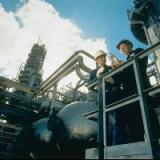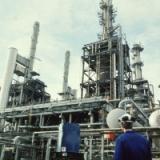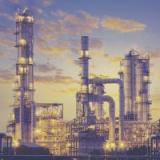Antifoulant Chemical Treatment
Treat and minimize fouling throughout your refinery process with Veolia's antifoulant chemicals
Process equipment fouling in refineries is an ongoing, tenacious, and extremely costly problem. Severe economic and operational penalties related to fouling include inefficient heat transfer, corrosion, reduced reliability and processing flexibility, excessive maintenance requirements, throughput limitations, equipment damage, and significant safety and environmental concerns.
For more than 30 years, Veolia has developed fouling reduction programs by analyzing system operating performance and mechanical configuration, root cause analysis, and antifoulant product testing on blended crude oil samples provided by the refiner.
Product Highlight
Features & Benefits
Case Studies

Thermoflo technology helps reduce high HFT values and get fuel “In-Spec”
A European refinery had a large batch of Fuel Oil out-of-spec due to high Hot Filtration Test (HFT) values.

U.S. Refinery Applies Veolia Thermoflo* antifoulant treatment program to increase uptime
A U.S. refinery was experiencing fouling in their naphtha hydrotreating preheat exchangers.

